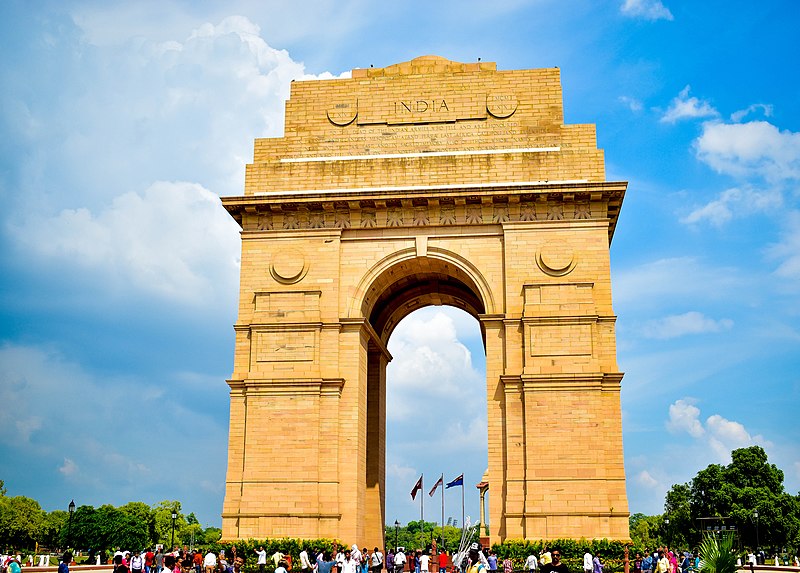All Indian politicians, intellectuals, public figures, celebrities, etc., are convinced the British were the worst rulers we ever had. That is the reason we celebrate August 15, 1947, as our Independence Day—and not On August 2, 1858, when the British Parliament passed the Government of India Act, transferring British power over India from the East India Company.
Consequently, every possible evil can is attributed to our colonial past and colonial legacy. Every evil, from poverty to social backwardness, the iniquitous Raj. And every action, including the monstrous Central Vista project and ‘merging’ of Amar Jawan Jyoti at the iconic India Gate with the flame at the National War Memorial nearby, is defended in the name of obliterating the colonial past. Even India Gate has been pushed to the repugnant realm under the umbra of colonial legacy.
If we think with an open mind, we’ll find that limitless hatred for British rule is based on prejudice rather than fact and reason. Yet, all Indians—from communists and socialists to Hindutva and Congress leaders—see it as an unmitigated disaster. In their scheme of things, the British Raj was a comprehensive disaster with unsavory repercussions for the economy, society, arts, culture, religion, collective psyche, indeed every sphere of life.
Eyes wide shut, we are unable to see a simple truth: the India we and the world know was made by the British. It is grudgingly accepted by everyone though that the British, for all their sins, did build institutions: civil service, police service, a standing army, modern judiciary and justice system, rudiments of democracy, representative government, the central bank, the Comptroller & Auditor General, a good and inclusive education system, Railways, etc. But these are often dismissed as the instruments to produce lowly-paid clerks, further imperial designs, and perpetuate exploitation.
Our textbooks teach us how conceited, selfish, and exploitative the British imperialists were. Thomas Macaulay’s famous statement is especially mentioned: “We must at present do our best to form a class who may be interpreters between us and the millions whom we govern; a class of persons, Indian in blood and colour, but English in taste, in opinions, in morals, and in intellect.”
The quote seems to expose the nefarious plot of creating, in the lingo commies love, ‘a comprador class,’ the quislings and Jaichands who kowtowed to their imperial masters. The sanskaris specially hate this class; they have even coined terms like Macaulay-putra and Macaulay-putri.
But neither jingoistic and doctrinal miasma nor semantic innovations can alter the fact that Macaulay was among those Britons who prepared the template of modern India. It was the education system that he conceived that is predominant not just in India but also Pakistan and Bangladesh. The political, literary, and scientific elites—indeed the entire intelligentsia—of the three countries are steeped in the Macaulayan system.
Ditto with our justice system. Almost single-handedly Macaulay created the Indian Penal Code over a century and a half ago. In Pakistan, it became, section by section, the Pakistan Penal Code and in Bangladesh the Bangladesh Penal Code. Of course, it was not perfect; the sedition section was an example, as also was the one on adultery (now abrogated). But the fact that the substantive part of the penal code has been accepted by three nations following different faiths is a testimony to the fact that the great imperialist had the perspicacity to delineate laws which were in consonance with the local requirements and the modern imperative, the imperative that a lot of Indians embraced.
If democracy has survived in India for so long, it is because of the institutions that the Raj built and nurtured; British rule also birthed modern literature and free press which continue to strengthen democracy.
Most importantly, the British brought the Enlightenment ideas to the Indian shores, though this was mostly involuntary. They came here for profits; witnessing a political vacuum during the decline of the Mughal Empire, they became politically ambitious; thanks to their superior organization, they ended up ruling the country. The upshot, at any rate, was that they sowed the seeds of modernity in India.
This is not to say that the Raj was without its demerits; nobody—not even conservative British historians like Niall Ferguson—denies the loot, rapacity, and cruelty of many of the conquerors. That, however, was how the world was in those days. It needs to be mentioned here though that the British were not as depraved as the conquerors preceding them; unlike Abdali and other Muslim invaders, the Brits didn’t enslave and sold women. Again, unlike their Muslim predecessors who left behind just tombs and cuisines, the British, in the words of Nirad C. Chaudhuri, made and shaped “all that was good and living within us.”
Against this backdrop, the vitriolic hatred for British rule is illogical. Worse, it results in bizarre statements, disrespect for conventions, and capricious decision making. In April 2010, Congress leader and former Union minister Jairam Ramesh had called the convocation gowns at universities as “barbaric colonial relics.” His party colleague, Shashi Tharoor, goes to the extent of blaming the British for the caste system. Given a chance, Indian politicians would blame the Raj even for crop burning in north India in the earlier weeks of every winter and the dead bodies floating in the Ganges during the second corona wave.
The saffron establishment hates the British so much that they literally want to tear apart everything related to the hated colonial legacy—they are actually doing that by way of Central Vista. Amar Jawan Jyoti was ‘merged’ with the flame at the National War Memorial as part of the remove-colonial legacy project.
